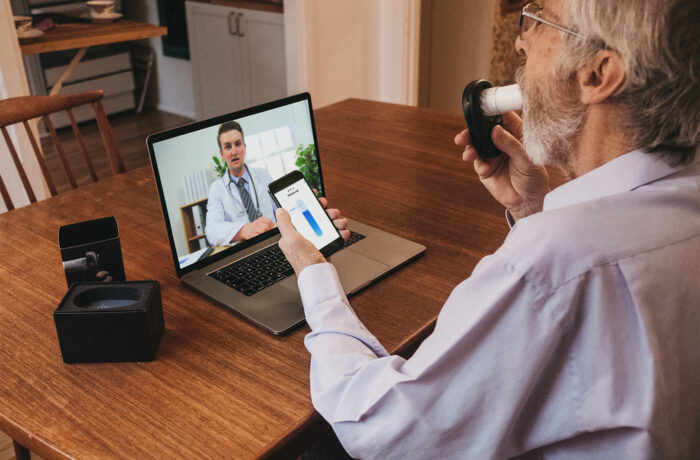NHS rolls out new tech nationally to prevent 3,650 strokes, save 900 lives and £81 million annually
Posted on
Innovative technology is being rolled out across the country to prevent strokes in a national campaign launched this month.
More than 6,000 devices including mobile electrocardiogram (ECG) units are being distributed to GP practices, pharmacies and NHS community clinics across England during National Heart Month this February.
The range of tech being rolled out can detect irregular heart rhythm quickly and easily, enabling NHS staff to refer any patients with irregular heart rhythms for follow up as they could be at risk of severe stroke.
Official figures show that more than 420,000 people across England have undiagnosed irregular heart rhythm, which can cause a stroke if not detected and treated appropriately, usually through blood-thinning medication to prevent clots that lead to stroke.
The mobile devices provide a far more sensitive and specific pulse check than a manual check. As a result, the project aims to identify 130,000 new cases of irregular heart rhythms (known as Atrial Fibrillation) over two years, which could prevent at least 3,650 strokes and save £81 million in associated health and costs annually.
The devices being rolled out are:
- AliveCor Kardia Mobile. A device linked to a smartphone that produces a medical-grade ECG in 30-seconds to detect atrial fibrillation (AF). https://shop.gb.alivecor.com/products/kardiamobile
- RhythmPad is two handprints that patients put their hands on that provides instantaneous non-invasive screening. http://www.cardiocity.com/
- MyDiagnostick is as easy as holding a steering wheel and within 60 seconds records a high-quality ECG and analyses it. https://mydiagnostick.eu/
- imPulse detects an ECG signal by the placement of the thumbs on the sensors embedded in the unit. This allows for a routine, quick, accurate recording of a lead one ECG signal without the need for conductive gel or skin preparation. The signal is transmitted using Bluetooth to a Smart-phone or Table computer and displays the ECG trace combined with a heart rate readout. http://www.plesseysemiconductors.com/products/impulse/
- WatchBP is a range of devices to check blood pressure using a cuff and a small handheld device to deliver accurate readings. https://www.watchbp.co.uk/
The devices are being rolled out by the 15 Academic Health Science Networks in the first six months of this year as part of an NHS England-funded project.
Professor Gary Ford, Stroke Physician and lead on the project for the Academic Health Science Networks, said:
“We have highly effective treatments that can prevent these strokes, but early detection is key. Using cost-effective technology, the NHS will now be able to identify people with irregular heart rhythms quickly and easily. This will save lives.
“As the NHS approaches its 70th birthday this year, this is also a great reminder of the way that healthcare is continually evolving and innovating. Taking advantage of digital health solutions will be even more important for the next 70 years. Today’s new devices are just one example of the way that low-cost tech has the potential to make a huge difference.”


